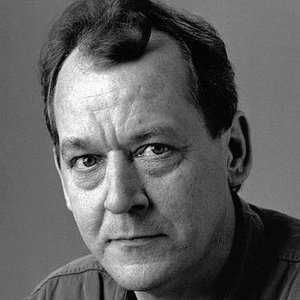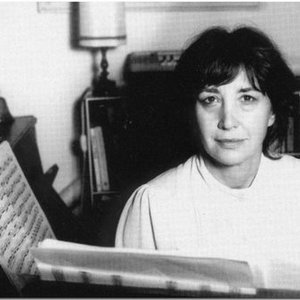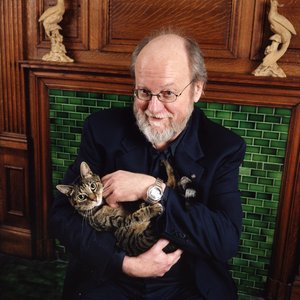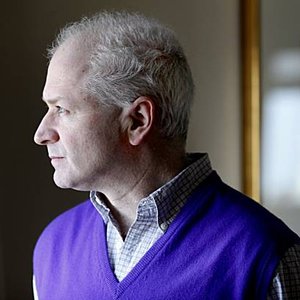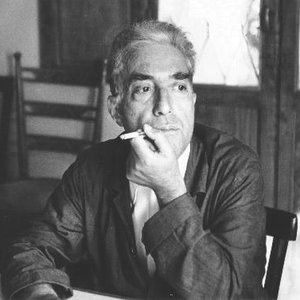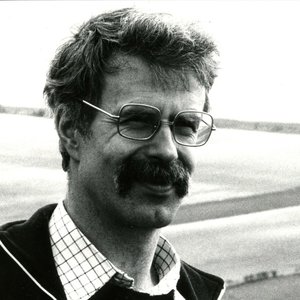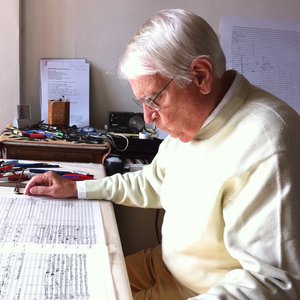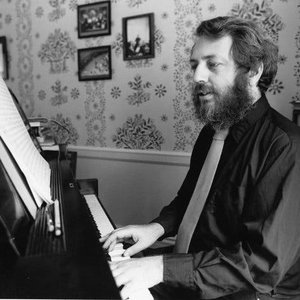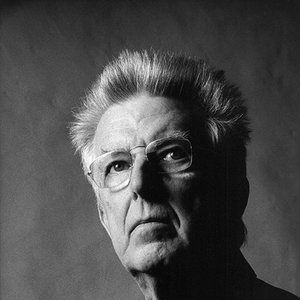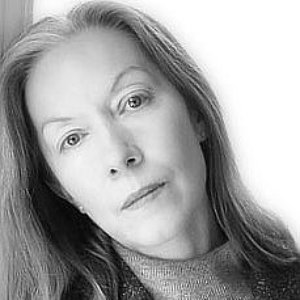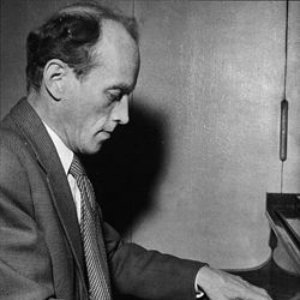Biography
-
Born
25 August 1902
-
Born In
Berlin, Germany
-
Died
4 April 1972 (aged 69)
Stefan Wolpe (August 25, 1902 – April 4, 1972) was a German-born composer.
Wolpe was born in Berlin. He attended the Berlin Conservatory from the age of fourteen, attended the Berlin Hochschule für Musik 1920-1921. He studied composition under Franz Schreker and was also a pupil of Ferruccio Busoni. He also studied at the Bauhaus and met some of the dadaists, setting Kurt Schwitters' poem Anna Blume to music.
The music Wolpe was writing between 1929 and 1933 was atonal, using Arnold Schoenberg's twelve tone technique. However, possibly influenced by Paul Hindemith's concept of Gebrauchsmusik (music which serves a social function) and, as an avid socialist, he wrote a number of pieces for worker's unions and communist theatre groups. For these he made his style more accessible, incorporating elements of jazz and popular music. His songs became popular, rivalling those of Hanns Eisler.
When the Nazis came to power in Germany, Wolpe, Jew and convinced communist, fled the country, passing through Romania and Russia en route to Austria 1933-1934, where he met and studied with Anton Webern. He later moved to Palestine, 1934-38, where he wrote simple songs for the kibbutzim. The music he was writing for concert performance, however, remained complex and atonal. Partly because of this his contract was not renewed for the 1938-1939 school year.
In 1938, Wolpe moved to New York City in the United States of America. There, during the fifties, he associated with the abstract expressionist painters. From 1952 to 1956 he was director of music at Black Mountain College, and he also lectured at the summer schools in Darmstadt in Germany. His pupils included Morton Feldman, Ralph Shapey, David Tudor, and Charles Wuorinen.
His works from this time sometimes used the twelve tone technique, were sometimes diatonic, were sometimes based on the Arabic scales (such as maqam saba) he had heard in Palestine and sometimes employed some other method of tonal organisation. His work was radical, but avoided the punctualism of composers such as Pierre Boulez (in his works from 1951–53), instead employing more conventionally expressive gestures.
Wolpe developed Parkinson's disease in 1964. He died in New York City in 1972. Elliott Carter commemorated Wolpe with the following comment, "Comet-like radiance, conviction, fervent intensity, penetrating thought on many levels of seriousness and humor, combined with breathtaking adventurousness and originality, marked the inner and outer life of Stefan Wolpe, as they do his compositions."
Artist descriptions on Last.fm are editable by everyone. Feel free to contribute!
All user-contributed text on this page is available under the Creative Commons Attribution-ShareAlike License; additional terms may apply.

